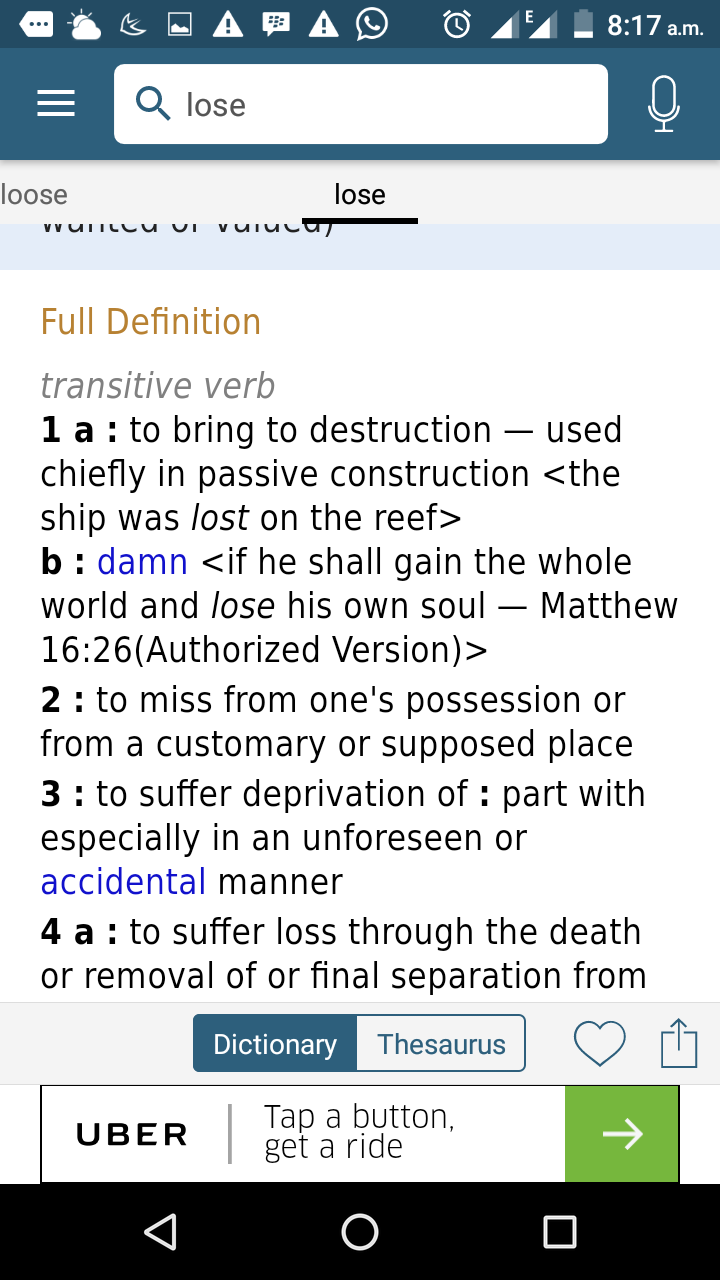Lose and Loose
Lose and loose are two English words which have left some English users confused about their usages. The confusion is made worse by the similar pronunciations the two words share. Notwithstanding the similar pronunciations, the words have distinct meanings.
Hereunder is an explanation of the meanings of the words and how they should be used.
LOSE:
According to Merriam Webster's dictionary, to lose means to bring to destruction.
It also means to cause (something) to cease to be in one's possession or capability due to unfortunate unknown circumstances, events or reasons.
Lose functions as a verb, and its most common meanings, among many others, are to be deprived of or cease to have or retain (something one once had); become unable to find (someone or something); to fail to win; or to fail to use or take advantage of. For example,
Unfortunately, I lost all of my photos in the fire.
I lost my friend in the crowd.
Our team lost the game tonight.
Do not lose this opportunity.
Lose, when said aloud, has a Z sound to it. It rhymes with snooze and schmooze. Saying it aloud can help you when you’re not sure which one to use in your writing.
LOOSE:
On the other hand, Loose as an adjective, according to Merriam Webster's dictionary, means:
not tightly fastened, attached, or held.
As a verb, it means: to release or untie (an animal or person).
Writing Explained went ahead to explain that:
It can function as an adjective and a verb. As an adjective, loose means not firmly or tightly held in place; not compact or dense; and free from restraint or confinement.
For example:
I have a loose tooth.
Drive slowly on the loose gravel road.
He broke loose.
SUMMARY:
In summary Lose and loose are two distinct words which have similar pronunciations but different meanings.
Remember:
LOSE is a verb and means to be deprived of something . When said aloud it rhymes with snooze.
LOOSE is an adjective and a verb and means to release something from restraints and to set it free . This rhymes with goose.
Socially evolved